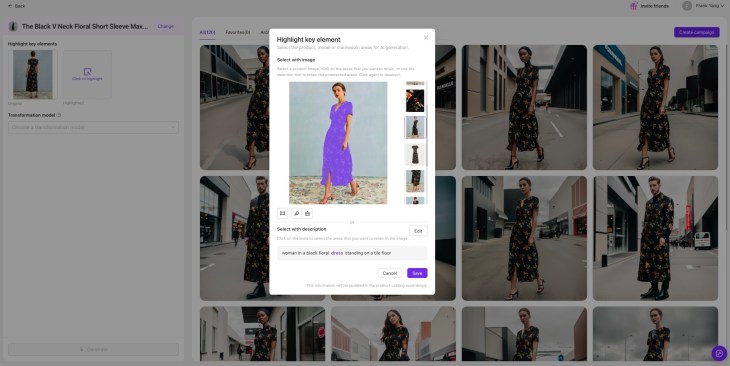[ad_1]

There’s no shortage of startups trying to automate marketing tasks by using generative AI. For WorkMagic, the target users are the millions of small-scale Shopify sellers who it believes can benefit immensely from cost savings in their marketing efforts.
Founded in June, WorkMagic offers a full-stack platform that handles everything from image and copy generation to campaign management and attribution analytics.
Having previously held the position of head of growth at TikTok Ads, WorkMagic’s co-founder and CEO Lidong Yang is well acquainted with the pain points of independent e-commerce sellers. “A skincare shop, operated by four to five people, typically would have to spend an entire month shooting Black Friday photos and spend $10,000-20,000 on it. That work can now be completely done by our platform,” Yang told TechCrunch.
We’ve covered similar tools like ZMO.ai, which also helps users generate marketing materials by feeding prompts to an AI model. But Yang said his company differentiates by also automating attribution, the process in advertising that measures how marketing tactics contribute to conversion and sales.
Once users grant WorkMagic access to their marketing accounts on Facebook, Google and other channels, the platform will analyze the effectiveness of each campaign. Leveraging a combination of mainstream foundational models and the startup’s in-house models, the AI will suggest and generate alternative images and text that might work better.
The advantage of having an attribution model, according to Yang, is that its models can keep finetuning based on a constant stream of data feedback that reveals what content works and exactly which campaign drives which orders.
Rather than viewing WorkMagic as a threat to product photographers and marketers, Yang billed it as an “empowering” tool for Shopify sellers. The startup’s agent technology is targeting small merchants with an annual gross merchandise value of less than $1 million while its attribution models aim to help bigger brands increase their media budget efficiency.
With the rise of Shopify, he argued, “more entrepreneurs will need to acquire marketing skills, be it on the creative or analytical side. Our end goal is to enable people to run one-person shops.”
Since debuting its one-stop marketing platform in early September, WorkMagic has accumulated “thousands of registered users” and “hundreds of” subscriptions. The startup raised its first round of funding totaling $2 million from Sinovation Ventures, the venture capital firm headed by AI scientist Kai-Fu Lee. Yang founded the company with Shuting Zhao, who worked as a senior product data scientist at Waymo before taking up the chief information officer role at WorkMagic. In just three months, WorkMagic has grown to over 30 people across five countries.
“The pace at which generative AI has been advancing over the past seven or eight months means that companies have to relearn new tools often and even scrap some of what they have built before,” said Yang when asked about competition with more established players in the AI marketing space.
“Whether it’s tools, use cases, product direction, or the development stack, they are dealing with an infrastructure that’s completely different from before. Even if the companies have developed solutions earlier, those might not be that helpful or relevant anymore,” he added.
[ad_2]
techcrunch.com




